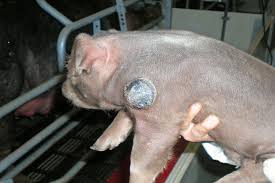


Starting a goat farm can be a rewarding and profitable venture. Goats are versatile animals that provide meat, milk, and fiber. However, starting a goat farm requires careful planning and knowledge. Here are some essential tips to help you get started.
Read more related: Reducing Methane Emissions from Livestock
Research and Planning
Before starting a goat farm, research is crucial. Learn about different goat breeds, their needs, and the market demand for goat products in your area. Develop a business plan that includes your goals, budget, and a timeline for achieving them.
Choosing the Right Breed
Different goat breeds serve different purposes. Dairy goats, such as Nubians and Saanens, are excellent for milk production. Meat goats, like Boers and Kikos, are bred for their meat. Fiber goats, such as Angoras, produce mohair. Choose a breed that aligns with your farming goals.
Land and Shelter
Goats require adequate space and shelter. They need a dry, draft-free area to protect them from extreme weather. A well-ventilated barn or shed is ideal. Ensure that your land has good drainage and access to fresh water.
Fencing
Goats are notorious for their escape skills. Invest in sturdy fencing to keep them contained. Electric fencing can be effective, but make sure it is safe and regularly maintained. The fence should be at least 4-5 feet high.
Feeding and Nutrition
Goats are browsers and prefer to eat a variety of plants. Provide them with a balanced diet that includes hay, grains, and fresh forage. Supplements such as minerals and vitamins are also essential for their health.
Health Care
Regular health care is vital for a thriving goat farm. This includes vaccinations, deworming, and regular check-ups. Find a veterinarian experienced with goats and keep their contact information handy.
Breeding
If you plan to breed goats, understand the breeding cycles and techniques. Maintain proper records of breeding dates, births, and health status. This will help you manage the herd effectively.
Marketing
Identify your target market for goat products. This could be local farmers’ markets, restaurants, or online platforms. Create a marketing strategy that highlights the quality of your products.
Legal Requirements
Familiarize yourself with local regulations regarding livestock farming. This includes zoning laws, animal welfare standards, and any required permits. Compliance with these laws is essential to avoid legal issues.
Continuous Learning
The goat farming industry is constantly evolving. Stay updated with the latest farming techniques, health care practices, and market trends. Join farming communities, attend workshops, and read relevant publications.
Conclusion
Starting a goat farm requires dedication and thorough preparation. By following these essential tips, you can establish a successful and sustainable goat farming business. Remember, the key to success is continuous learning and adapting to new challenges.



